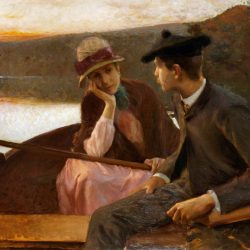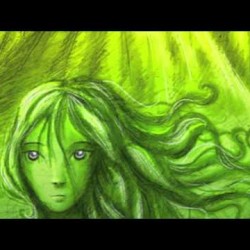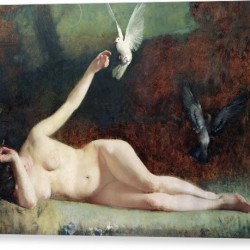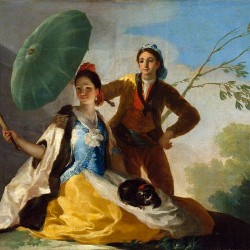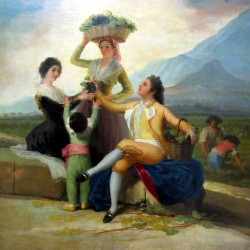- HOME
- MEDIA
- L.Onerva
- Eino Leino
- Eeva-Liisa Manner
- Erään Opon päiväkirja
- Elämänkenttäni
- Elämäni ”viiva”
- Käyttöteoriani – se miten minä ohjaan
- Kulttuuritietoinen ja kansainvälistyvä ohjaus
- Ohjauksen järjestäminen maahanmuuttajakoulutuksessa
- Ohjauksen yhteiskunnallinen viitekehys
- Ohjaukäsite
- Oma opiskeluorientaatio
- Opiskelijoiden yksilöllisyys ohjauksessa
- EETTISET KYSYMYKSET
- Psykososiaalisen kehityksen teoria
- Suhteeni erilaisuuteen ja tehtäväni opinto-ohjaajana
- Opinto-ohjauksen ja erityisopetuksen yhtäläisyyksiä ja eroja
- Kehitykseni opinto-ohjaajana
- Maahanmuuttajan uraohjaus
- Maahanmuuttajien ohjaus ja neuvonta: kuka, mitä, miten?
- Ohjauksen tulevaisuus
- Elämänkenttäni
- Mariana Marin
- Claudiu Komartin
- Mariana Codrut
- Roland Erb
- Romanian poetry
- STORIES
- READING POETRY
- translated Finnish-Romanian
- translated English-Finnish
- translated French-Finnish
- translated Romanian-English
- translated Spanish-English
- translated German-English
- translated Finnish-English
- translated English-Romanian
- translated French-Romanian
- translated French-English
- translated Romanian-French
- translated Romanian-German
translated Spanish-English
SI TÚ ME OLVIDAS / DACĂ MĂ VEI UITA / IF YOU FORGET ME
POSTED IN classic poetry, translated Spanish-English, translated Spanish-Romanian September 26, 2021
SI TÚ ME OLVIDAS / DACĂ MĂ VEI UITA / IF YOU FORGET ME
Quiero que sepas
una cosa.Tú sabes cómo es esto:
si miro
la luna de cristal, la rama roja
del lento otoño en mi ventana,
si toco
junto al fuego
la impalpable ceniza
o el arrugado cuerpo de la leña,
todo me lleva a ti,
como si todo lo que existe,
aromas, luz, metales,
fueran pequeños barcos que navegan
hacia las islas tuyas que me aguardan.Ahora bien,
si poco a poco dejas de quererme
dejaré de quererte poco a poco.Si de pronto
me olvidas
no me busques,
que ya te habré olvidado.Si consideras largo y loco
el viento de banderas
que pasa por mi vida
y te decides
a dejarme a la orilla
del corazón en que tengo raíces,
piensa
que en ese día,
a esa hora
levantaré los brazos
y saldrán mis raíces
a buscar otra tierra.Pero
si cada día,
cada hora
sientes que a mí estás destinada
con dulzura implacable.
Si cada día sube
una flor a tus labios a buscarme,
ay amor mío, ay mía,
en mí todo ese fuego se repite,
en mí nada se apaga ni se olvida,
mi amor se nutre de tu amor, amada,
y mientras vivas estará en tus brazos
sin salir de los míos.
PABLO NERUDA
………………………
DACA MA VEI UITA
Vreau să știi
un lucru.Știi cum este e:
dacă mă uit
luna de cristal, ramura roșie
a toamnei lente la fereastra mea,
dacă ating
lângă foc
cenușa impalpabilă
sau corpul ridat al lemnului,
totul mă duce spre tine,
de parcă tot ce există,
arome, lumina, metale,
au fost barci mici care navigheaza
spre insulele tale care mă așteaptă.In orice caz,
dacă încetul cu încetul încetezi să mă mai iubești
Voi înceta să te iubesc puțin câte puțin.Dacă brusc
m-ai uitat
nu ma cauta,
căci te voi fi uitat deja.Dacă tu consideri lung și nebun
vântul steagurilor
ce trece în viața mea
si hotarasti
să mă lasi pe malul
inimii în care am rădăcini,
tine minte
că în acea zi,
în acel moment
imi voi ridica brațele
iar rădăcinile mele vor porni
să caute un alt pământ.Dar
dacă în fiecare zi,
in fiecare ora
simți că ești destinată mie
cu dulceață implacabilă.
dacă-n fiecare zi o floare urca
pana la buzele tale să mă caute,
ah, iubirea mea, a mea,
în mine tot acel foc se repetă,
nimic din mine nu-i stins nici uitat,
iubirea-mi se hrănește din a ta, iubito,
și-atat cat vei trai va fi-n brațele tale
făr-a le parasi pe-ale mele.…………………………………..
IF YOU FORGET ME
I want you to know
one thing.You know how it is:
if I look
at the crystal moon, at the red branch
of the slow autumn at my window,
if I touch
by the fire
the impalpable ash
or the wrinkled body of the wood,
everything leads me to you,
as if everything that exists,
aromas, light, metals,
were little boats that sail
toward those isles of yours that await me.Well, now,
if little by little you stop loving me
I’ll stop loving you little by little.If suddenly
you forget me
don’t look for me,
for I’ll have already forgotten you.If you consider long and mad,
the wind of banners
that passes through my life,
and you decide
to leave me at the shore
of the heart where I have roots,
remember
that on that day,
at that hour,
I shall raise my arms
and my roots will set off
to seek another land.But
if each day,
each hour,
you feel that you are destined for me
with implacable sweetness,
if each day a flower
rises to your lips to look for me,
ah my love, ah my own,
in me all that fire repeats itself,
in me nothing is extinguished or forgotten,
my love feeds on your love, beloved,
and as long as you live it will be in your arms
without leaving mine.
translation, Maria Magdalena Biela
El canto de la miel / Cântecul mierii / The song of honey
POSTED IN classic poetry, translated Spanish-English, translated Spanish-Romanian May 3, 2021
El canto de la miel / Cântecul mierii / The song of honey
La miel es la palabra de Cristo,
el oro derretido de su amor.
El más allá del néctar,
la momia de la luz del paraíso.La colmena es una estrella casta,
pozo de ámbar que alimenta el ritmo
de las abejas. Seno de los campos
tembloroso de aromas y zumbidos.La miel es la epopeya del amor,
la materialidad de lo infinito.
Alma y sangre doliente de las flores
condensada a través de otro espíritu.(Así la miel del hombre es la poesía
que mana de su pecho dolorido,
de un panal con la cera del recuerdo
formado por la abeja de lo íntimo)La miel es la bucólica lejana
del pastor, la dulzaina y el olivo,
hermana de la leche y las bellotas,
reinas supremas del dorado siglo.La miel es como el sol de la mañana,
tiene toda la gracia del estío
y la frescura vieja del otoño.
Es la hoja marchita y es el trigo.¡Oh divino licor de la humildad,
sereno como un verso primitivo!La armonía hecha carne tú eres,
el resumen genial de lo lírico.
En ti duerme la melancolía,
el secreto del beso y del grito.Dulcísima. Dulce. Este es tu adjetivo.
Dulce como los vientres de las hembras.
Dulce como los ojos de los niños.
Dulce como las sombras de la noche.
Dulce como una voz. O como un lirio.Para el que lleva la pena y la lira,
eres sol que ilumina el camino.
Equivales a todas las bellezas,
al color, a la luz, a los sonidos.¡Oh! Divino licor de la esperanza,
donde a la perfección del equilibrio
llegan alma y materia en unidad
como en la hostia cuerpo y luz de Cristo.Y el alma superior es de las flores,
¡Oh licor que esas almas has unido!
El que te gusta no sabe que traga
un resumen dorado del lirismo.
Federico García Lorca
………………………………
Cântecul mierii
Mierea este cuvântul lui Hristos,
aurul topit al iubirii sale.
Nectarul de dincolo,
mumia luminii paradisului.Stupul este o stea castă,
fântână de chihlimbar ce hraneste ritmul
albinelor. Sânul câmpurilor
tremurând de arome și zumzet.Mierea este epopeea iubirii,
materialitatea infinitului.
Suflet și sânge dureros al florilor
condensat printr-un alt spirit.(Deci mierea omului este poezia
care curge din pieptul sau dureros,
al unui fagure cu ceara memoriei
formata de albina intimitatii)Mierea este bucolica îndepărtată
a ciobanului, a fluierului și măslinului,
sora laptelui și a ghindelor,
regine supreme ale secolului de aur.Mierea este ca soarele dimineții
are toată gratia verii
și vechea prospețime a toamnei.
Este frunza ofilită și grâul.¡Oh, licoare divina a smereniei,
senina ca un vers primitiv!Armonia devenita carne ești tu,
rezumatul genial al liricii.
Melancolia doarme în tine,
secretul sărutului și al plânsului.Cea mai dulce. Dulce. Acesta ti-e adjectivul.
Dulce ca pântecele femeilor.
Dulce ca ochii copiilor.
Dulce ca umbrele nopții.
Dulce ca o voce. Sau ca un crin.Pentru cel care poartă durerea și lira,
tu ești soarele care luminează calea.
Egalezi toate frumusețile,
coloarea, lumina, sunetele.¡Oh! Licoare divina a speranței
unde, spre perfecțiunea echilibrului
sufletul și materia devin una precum
in cuminecatura trupul și lumina lui Hristos.Și sufletul superior este al florilor,
¡Oh, licoare ce-ai unit acele suflete!
Cel care te place nu știe ca înghite
esenta de aur a lirismului.
………………………………..
The song of honey
Honey is the word of Christ,
the molten gold of his love.
The beyond of nectar,
the mummy of the light of paradise.The hive is a chaste star,
amber fountain that feeds the rhythm
of bees. The bosom of fields
trembling with aromas and hum.Honey is the epic of love,
materiality of the infinite.
soul and painful blood of flowers
condensed through another spirit.(So honey of man is poetry
that flows from his aching chest,
from a honeycomb with the wax of memory
shaped by the intimate bee)Honey is the distant bucolic
of the shepherd, the whistle and olive tree,
sister of milk and acorns,
supreme queens of the golden age.Honey is like the morning sun
with all the graces of summertime
and the old freshness of autumn.
It is withered leaf and it is the wheat.Oh, divine liquor of humility,
serene as a primitive verse!Harmony that became flesh you are,
the inspired summary of the lyrics.
Melancholy sleeps in you,
the secret of the kiss and shout.Sweetest. Sweet. This is your adjective.
Sweet as the belly of women.
Sweet as the eyes of children.
Sweet as the shadows of the night.
Sweet like a voice. Or like a lilly.For the one who bears the pain and the lyre,
you are the sun that lights the way.
You equal all the beauties,
to the color, the light, sounds.Oh! Divine liqueur of hope
with the perfection of balance
soul and matter like in the holy bread,
body and light of Christ.And the higher soul is of flowers,
Oh, liquor that those souls you have joined!
He who tastes you doesn’t know that he swallows
the golden essence of lyricism.Translated by Maria Magdalena Biela
Romance sonámbulo / Somnambulist Romance / Romanta somnambula
POSTED IN classic poetry, translated Spanish-English, translated Spanish-Romanian March 31, 2019
Romance sonámbulo / Somnambulist Romance / Romanta somnambulaVerde que te quiero verde.
Verde viento. Verdes ramas.
El barco sobre la mar
y el caballo en la montaña.
Con la sombra en la cintura
ella sueña en su baranda,
verde carne, pelo verde,
con ojos de fría plata.
Verde que te quiero verde.
Bajo la luna gitana,
las cosas le están mirando
y ella no puede mirarlas.*
Verde que te quiero verde.
Grandes estrellas de escarcha,
vienen con el pez de sombra
que abre el camino del alba.
La higuera frota su viento
con la lija de sus ramas,
y el monte, gato garduño,
eriza sus pitas agrias.
¿Pero quién vendrá? ¿Y por dónde…?
Ella sigue en su baranda,
verde carne, pelo verde,
soñando en la mar amarga.*
Compadre, quiero cambiar
mi caballo por su casa,
mi montura por su espejo,
mi cuchillo por su manta.
Compadre, vengo sangrando,
desde los montes de Cabra.
Si yo pudiera, mocito,
ese trato se cerraba.
Pero yo ya no soy yo,
ni mi casa es ya mi casa.
Compadre, quiero morir
decentemente en mi cama.
De acero, si puede ser,
con las sábanas de holanda.
¿No ves la herida que tengo
desde el pecho a la garganta?
Trescientas rosas morenas
lleva tu pechera blanca.
Tu sangre rezuma y huele
alrededor de tu faja.
Pero yo ya no soy yo,
ni mi casa es ya mi casa.
Dejadme subir al menos
hasta las altas barandas,
dejadme subir, dejadme,
hasta las verdes barandas.
Barandales de la luna
por donde retumba el agua.*
Ya suben los dos compadres
hacia las altas barandas.
Dejando un rastro de sangre.
Dejando un rastro de lágrimas.
Temblaban en los tejados
farolillos de hojalata.
Mil panderos de cristal,
herían la madrugada.*
Verde que te quiero verde,
verde viento, verdes ramas.
Los dos compadres subieron.
El largo viento, dejaba
en la boca un raro gusto
de hiel, de menta y de albahaca.
¡Compadre! ¿Dónde está, dime?
¿Dónde está mi niña amarga?
¡Cuántas veces te esperó!
¡Cuántas veces te esperara,
cara fresca, negro pelo,
en esta verde baranda!*
Sobre el rostro del aljibe
se mecía la gitana.
Verde carne, pelo verde,
con ojos de fría plata.
Un carámbano de luna
la sostiene sobre el agua.
La noche su puso íntima
como una pequeña plaza.
Guardias civiles borrachos,
en la puerta golpeaban.
Verde que te quiero verde.
Verde viento. Verdes ramas.
El barco sobre la mar.
Y el caballo en la montaña.FEDERICO GARCIA LORCA
————————————-Somnambulist Romance
Green how much I love you green.
The green wind. The green branch seen.
The boat out there on the sea
on the mount my horse to be.
With the shade around her waist
on the balcony she dreams
her green flesh, her green hair chaste
eyes of cold silver that beams.
Green how much I love you green
Under the gypsy moon, gem
things are watching her, unseen
and she can not look at them.X
Green how much I love you green
Great stars of the frost, unknown
on the fish of shadow lean
that opens the path of dawn.
The fig rubs the wind to harden
with sandpaper of its branch,
and the mountain, and the marten,
ruffle their sour patch.
But who’ll come? And from where haste…?
She’s still on her balcony,
her green flesh, her green hair chaste
dreaming of the bitter sea.X
– Man, I would like now to trade
my horse for your house, my friend
for your mirror, my old saddle
my knife for your blanket cuddle.
My friend, I am badly bleeding,
from the mount of Cabra riding.
– If I could, young man, I vow
that deal would be closed right now.
But no longer I’m myself ,
Nor is my house where I dwell.
My friend, I would like to die
in my bed and not astray
A bed of steel, to be mine
with the sheets of canvas fine
Don’t you see I’m wounded cold
from the chest up to the throat?
– Three hundred dark roses sad
on your white shirt blossomed fad.
Your blood oozes, smells like pelt
round the corners of your belt
But no longer I’m myself,
Nor is my house where I dwell.
Let me climb at least, you see
up to the high balcony,
let me go up there, let me,
up to the green balcony.
Balustrades towards the moon
where the waters sound in tune.X
The two friends already climb
to high balconies with chime.
Leaving trail of blood behind
Leaving trail of tears to hide.
The tin lanterns quite aloof
were trembling on the roof.
Crystal tambourines, thousands sight
were striking at the dawn light.X
Green how much I love you green.
The green wind. The green branch seen.
The two friends together climb.
The stiff wind, letting with grime
in their mouth a taste dazzles
of gall, of mint and of basil.
My friend! Where is she, now tell?
Where is she, my bitter girl?
How long did she wait for you!
How long would she still, who knew?
Her green flesh, her green hair dreams
eyes of cold silver that beams.X
On the water of the well
the gypsy girl swings in spell
Her green flesh, her green hair dreams
eyes of cold silver that beams.
An icicle of moon suave
holds her up, water above
The night intimate became
like a small piazza frame.
And the drunken civil guard
at the door were knocking hard..
Green how much I love you green.
The green wind. The green branch seen.
The boat out there on the sea
on the mount my horse to be.– – – – – – – – – – – – – – – – – – –
Romanta somnambula
Verde, cât te iubesc, verde!
Verde vânt, ramura verde.
Barca pe-ale marii unde,
calul sus pe-un varf de munte.
valurita-n umbra tandra
ea viseaza pe veranda,
verde fata, parul verde,
ochi de-argint lumina vede.
Verde, cât te iubesc, verde!
Sub o luna de tiganca
lucrurile-o vad, dar ea
ea nu poate sa le vada.X
Verde, cât te iubesc, verde!
Stele mari ingeruite
vin cu pestele de umbra
calea zilei vor deschide.
Smochinul raneste vântul
cu creanga-i neslefuita,
iar muntele precum jderul
zbarleste acru vesmantul.
Cine-o veni? Si pe unde?
Pe veranda ea ramasa
verde fata, părul verde,
marea-amara ea viseaza.X
– Prietene, sa schimb as vrea
calul meu pe casa ta,
Saua mea pe-a ta oglinda
şi cuţitul pe manta.
Om bun, sangerand in sa
vin din muntii de la Cabra.
Tinere, dac-as putea,
acest targ l-as incheia.
Ce-am fost mi-este doar umbra
Casa-mi nu mai e a mea
-Prietene, sa mor lasat
Omeneste-n al meu pat
Din otel de-ar fi, ofranda,
cu cearsafuri de olanda.
Nu-mi vezi rana adancata
din piept pan’ la beregata?
– Trei sute de roze negre
alba ta camasa poarta.
Sangele ti se prelinge
Pan’ la brau, miroase-a soarta
Ce-am fost mi-este doar umbra,
Casa-mi nu mai e a mea
Sa urc, ma lasa macar
Pâna la veranda doar
Lasa-ma sa urc, ma crede
Pân’ sus, la veranda verde,
Balustrada catre luna
Unde apa tot rasuna.X
Cei doi greu se catarara
Pan’ la-naltele balcoane,
urma de sânge lasara
urma de lacrimi amara.
Tremurau pe-acoperisuri
felinarele din tabla.
Cristal tamburine, mii
bateau tare-n zori de zi.X
Verde, cât te iubesc, verde!
Verde vânt, ramura verde.
Cei doi împreuna urca
Vântul pe buze usuca
gust de fiere nenoroc
de menta si busuioc.
Prietene, unde e ea?
Unde-i trista, fata mea?
Cât timp ea te-a asteptat
Cat timp te-o mai astepta
Fata frageda, par smoala,
Pe veranda verde, goala!X
In adancul de fântâna
Privea tiganca nebuna
verde fata, parul verde,
ochi de-argint lumina vede.
pe-un turtur de noua luna
asupra apei atarna
Noaptea e intimitate
ca o mica piata-n noapte.
Garzile Civile, bete,
Loveau in poarta cu sete.Verde, cât te iubesc, verde!
Verde vânt, ramura verde.
Barca pe-ale marii unde,
calul sus pe-un varf de munte.Maria Magdalena
Casida IX DE LAS PALOMAS OSCURAS
POSTED IN classic poetry, translated Spanish-English March 30, 2019
Casida IX
DE LAS PALOMAS OSCURASA Claudio Guillén
Por las ramas del laurel
vi dos palomas oscuras.
La una era el Sol,
la otra la Luna.
“Vecinitas”, les dije,
“dónde está mi sepultura?”
“En mi cola”, dijo el Sol.
“En mi garganta”, dijo la Luna.
Y yo que estaba caminando
con la tierra por la cintura
vi dos águilas de nieve
y una muchacha desnuda.
La una era la otra
y la muchacha era ninguna.
“Aguilitas”, les dije,
“dónde está mi sepultura?”
“En mi cola”, dijo el Sol.
“En mi garganta”, dijo la Luna.
Por las ramas del laurel
vi dos palomas desnudas.
La una era la otra
y las dos eran ninguna.(Diván del Tamarit)
FEDERICO GARCIA LORCA
———————————————
Casida IX
OF THE DARK DOVES
By the branches of the laurel
I saw two dark pigeons.
One was the Sun,
the other the Moon.
“Little neighbours,” I said,
“Where is my grave?”
“On my tail,” said the Sun.
“In my throat,” said the Moon.
And I was walking
with the earth by the waist
I saw two snow eagles
and a naked girl.
One was the other
and the girl was none.
“Little eagles,” I said,
“Where is my grave?”
“On my tail,” said the Sun.
“In my throat,” said the Moon.
By the branches of the laurel
I saw two naked pigeons.
One was the other
and both were none.
Maria Magdalena
La lluvia / The Rain
POSTED IN classic poetry, Spring, translated Spanish-English May 4, 2018
La lluvia / The Rain
La lluvia tiene un vago secreto de ternura,
algo de somnolencia resignada y amable,
una música humilde se despierta con ella
que hace vibrar el alma dormida del paisaje.Es un besar azul que recibe la Tierra,
el mito primitivo que vuelve a realizarse.
El contacto ya frío de cielo y tierra viejos
con una mansedumbre de atardecer constante.Es la aurora del fruto. La que nos trae las flores
y nos unge de espíritu santo de los mares.
La que derrama vida sobre las sementeras
y en el alma tristeza de lo que no se sabe.La nostalgia terrible de una vida perdida,
el fatal sentimiento de haber nacido tarde,
o la ilusión inquieta de un mañana imposible
con la inquietud cercana del color de la carne.El amor se despierta en el gris de su ritmo,
nuestro cielo interior tiene un triunfo de sangre,
pero nuestro optimismo se convierte en tristeza
al contemplar las gotas muertas en los cristales.Y son las gotas: ojos de infinito que miran
al infinito blanco que les sirvió de madre.Cada gota de lluvia tiembla en el cristal turbio
y le dejan divinas heridas de diamante.
Son poetas del agua que han visto y que meditan
lo que la muchedumbre de los ríos no sabe.¡Oh lluvia silenciosa, sin tormentas ni vientos,
lluvia mansa y serena de esquila y luz suave,
lluvia buena y pacifica que eres la verdadera,
la que llorosa y triste sobre las cosas caes!¡Oh lluvia franciscana que llevas a tus gotas
almas de fuentes claras y humildes manantiales!
Cuando sobre los campos desciendes lentamente
las rosas de mi pecho con tus sonidos abres.El canto primitivo que dices al silencio
y la historia sonora que cuentas al ramaje
los comenta llorando mi corazón desierto
en un negro y profundo pentágrama sin clave.Mi alma tiene tristeza de la lluvia serena,
tristeza resignada de cosa irrealizable,
tengo en el horizonte un lucero encendido
y el corazón me impide que corra a contemplarte.¡Oh lluvia silenciosa que los árboles aman
y eres sobre el piano dulzura emocionante;
das al alma las mismas nieblas y resonancias.Federico Garcia Lorca
……………………………………………………………………………
THE RAINThe rain has a vague secret of tenderness,
some resigned and kind drowsiness,
a humble music wakes up with her
that makes the sleeping soul of the landscape vibrate.It’s a blue kiss that Earth receives,
the primitive myth that returns to be realized.
The already cold contact of old heaven and earth
with a meekness of a constant sunset.It’s the aurora of the fruit. The one that brings us the flowers
and anoints us with the holy spirit of the seas.
The one that spills life on the sowings
and in the soul sadness of what is not known.The terrible nostalgia of a lost life,
the fatal feeling of being born late,
or the restless illusion of an impossible tomorrow
with the inquietude close to the color of the flesh.Love wakes up in the gray of its rhythm,
our inner heaven has a triumph of blood,
but our optimism turns to sadness
when contemplating the drops dead in the crystals.And they are the drops: eyes of infinity that look
to the white infinity that served as their mother.Every drop of rain trembles in the cloudy crystal
and leave you divine diamond wounds.
They are poets of water who have seen and who meditate
what the crowd of the rivers does not know.¡Oh silent rain, without storms or winds,
gentle and serene rain of shearing and soft light,
good and peaceful rain that you are the true one,
the one that tearful and sad about things you fall!¡Oh Franciscan rain that you take to your drops
souls from clear sources and humble springs!
When on the fields you descend slowly
the roses of my chest with your sounds open.The primitive song that you say to silence
and the sound story that you tell the branches
tells them crying my desolate heart
in a black and deep pentagram without a key.My soul has the sadness of the serene rain,
the resigned sadness of helplessness
I have a lighted star on the horizon
and my heart stops me from running to look at you.¡Oh silent rain that the trees love
and you are on the piano exciting sweetness;
give to the soul the same mists and resonances
English version, Maria Magdalena Biela
La Vendimia / The Harvest
POSTED IN classic poetry, Spring, translated Spanish-English May 4, 2018
La Vendimia / The HarvestEn un campo árido, reseco, muerto
puse gotas de ilusiones para regar
esforzando los corazones y cuerpos
hasta poder nuestro amor cosechar.En el mercado de corazones
fui una vez a participar en subasta,
aposte allí todas mis ilusiones
y llegué a tu amor de manera exacta.El amor recién descubierto
he guardado como tesoro
en el pecho, para ti abierto
como cofrecito color de oro
Embargado de dicha, pleno
te confieso mi sentimiento
de amor limpio y sereno
en el alma y pensamiento
a pesar de mi pobreza
te ofrezco mi único tesoro
lleno de amor con realeza
El cofrecito color de oroRecolectando,
mis ilusiones
guarde mis ansias
por encontrarte;
y en la subasta de
mis tristezas
encontre los frutos
de nuestro amorLa Vendimia que hoy honramos
a fuerza de amor y dulzura,
recoge el verde de las uvas
en las mieles del te quiero.
La tierra fértil abonadas con amor
ha sembrado con las aguas de pasión
que han sido fecundadas con fuego
que ha cosechado el corazón.Entonces todo las pasiones entregadas
hicieron suma para la tierra abonarla
con semillas puras de amor endulzadas
consagrando un planta para adorarla.Subaste mi amor con tus besos
los cuales siempre me diste
te entregue mi amor por completo
sin pensar que serias mi comprador absoluto.nuestro amor es dulce como la uva madura, que se recoge y con la cual se hace el mejor vino, nuestra relacion fue cosechada en el mejor tiempo, nuestro amor da muchos frutos por la intensidad con que nos amamos.
Ha concluido el esfuerzo de ambos
la consagración nos ha premiado
la vendimia del amor demostrado
resulto el eden hilando nuestro lazos.Vito Angeli
……………………………………………….The Harvest
In an arid, parched, dead field
I put drops of illusions to water
straining hearts and bodies
until our love can harvest.In the market of hearts
I went once to participate in auction,
bet there all my illusions
and I got to your love exactly.The newly discovered love
I have saved as treasure
in the chest, for you open
as a gold colored casket
Embargoed of happiness, fully
I confess my feeling
of clean and serene love
in the soul and thought
despite my poverty
I offer you my only treasure
full of love with royalty
The gold-colored casketCollecting,
My illusions
save my cravings
to find you;
and in the auction of
my sorrows
I found the fruits
of our loveThe harvest that we honor today
by force of love and sweetness,
pick up the green of the grapes
in the honey of I love you.
The fertile soil fertilized with love
has sown with the waters of passion
that have been fertilized with fire
who has harvested the heartThen all the passions delivered
they made money for the land
with pure seeds of sweetness sweetened
consecrating a plant to worship it.You raised my love with your kisses
which you always gave me
I give you my love completely
without thinking that you would be my absolute buyer.Our love is sweet like the ripe grape, which is picked and with which the best wine is made, our relationship was harvested at the best time, our love gives many fruits for the intensity with which we love each other.
It’s finished the effort of both
the consecration has rewarded us
the harvest of love demonstrated
the Eden resulted by spinning our ties.English version, Maria Magdalena Biela

Copyright © 2025 by Magdalena Biela. All rights reserved.
